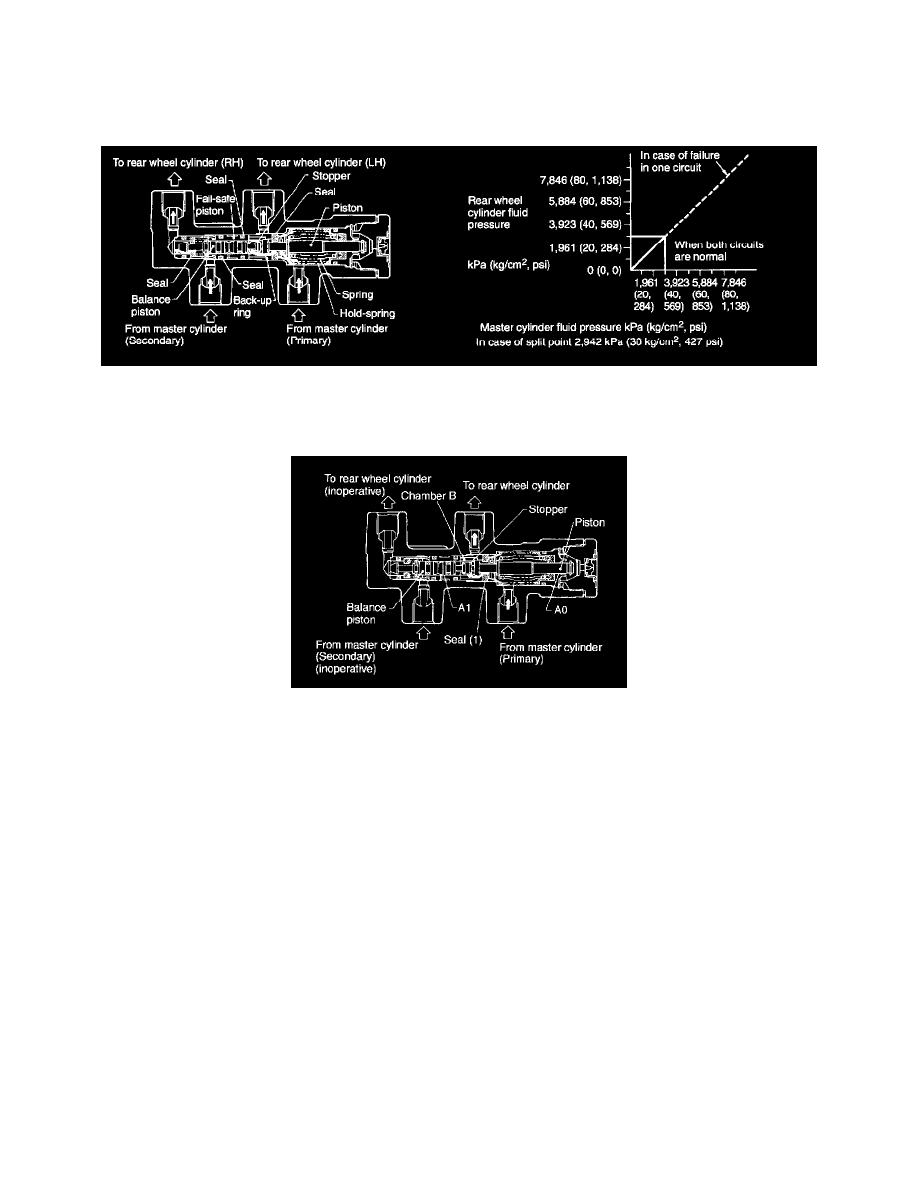Impreza RS Coupe AWD F4-2.5L SOHC (1999)

Brake Proportioning/Combination Valve: Description and Operation
Without ABS
Description
The proportioning valve for dual engine systems is adopted for controlling the braking force.
Operation During Normal Conditions
When the fluid pressure in the master cylinder is low (the fluid pressure before the split point), the piston is pressed by the spring load and the valve
remains inoperative. As a result, the fluid pressure in the master cylinder is held equal to the fluid pressure in the rear wheel cylinder.
-
When the master cylinder fluid pressure rises, the piston in the primary circuit is moved rightward against the spring load, and brought into contact
with the seal (1) (as shown in the figure). The master cylinder fluid pressure chamber (chamber A) is therefore cut off from the rear wheel cylinder
fluid pressure chamber (chamber B), and the fluid pressure to the rear wheel cylinder is thus controlled. (The pressure at this moment is the split
point pressure.)
If the fluid pressure in chamber A rises further, the piston is moved leftward, off the seal (1), and this causes the fluid pressure in chamber B to rise. The
piston is then moved rightward, and brought into contact with the seal (1) again. After this, the piston repeats this contact with the seal (1) in this way,
thereby controlling the fluid pressure in the rear wheel cylinder.
-
When the fluid pressure in chamber B is controlled in the secondary circuit, the balance piston is moved rightward by the fluid pressure difference
between chamber B and chamber C, and brought into contact with the seal (2), and the fluid pressure in chamber D is controlled. Since sectional
areas A1 and A2 are equal, the balance piston is pushed by equal forces from the right and left. If the fluid pressure rises in chamber B. the balance
piston performs control to equalize the fluid pressure in chamber D and chamber B by repeating open-close operation with the seal (2).
Failure of Primary Circuit
